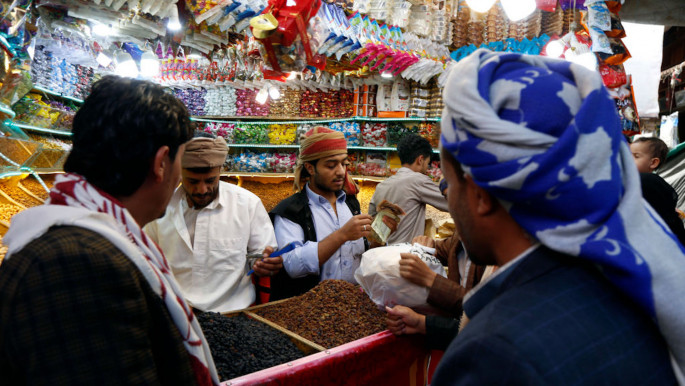
Despite the war, the Eid spirit is still alive in Yemen
The war failed to destroy the Eid spirit, but it has had a toll on Eid the same way it did on every aspect of Yemenis' lives.
It has affected Eid gatherings, as many families left the country in hopes of finding a better future somewhere else, and many people lost their families to the brutal war.
Nanii Gallery – a gift shop – displays brand new bags and accessories, especially for Eid. Caneer Cake, a bakery, offers a variety of cookies, baked for Eid, and in double the quantities.
Other shops have also made their own preparations. All are working in full swing, and excitement is in the air.
 |
Every table has its own share of cookies, chocolate and nuts, all placed in fancy crystal plates. Oudh and Bakhoor incense containers are then placed on the mantle; the Diwan is now ready for Eid. |  |
In Yemen, Eid celebrations have always been the same: the same preparations, the same rituals and most importantly the same hard work. Yet, every year it is welcomed with a fresh sense of eagerness as if it is being celebrated for the very first time.
No one sleeps on the eve of Eid. Children are too excited, too afraid that if they snooze off they may miss their long awaited guest.
Mothers, meanwhile; have too many chores to think of to sleep. They, their children and their house must be ready before the Fajr dawn prayer!
There is no Samosa making on the day that precedes Eid. It is replaced by the preparation of the Thamoul traditional cakes and other cookies.
To receive the Eid guests, hosts have to make sure their homes are in perfect order. Emphasis is placed on the guest room, the Diwan. Curtains are washed thoroughly, floors swept and brand new cloths are placed on the tables. Once the Diwan is ready, snacks are prepared and brought in.
Every table has its own share of cookies, chocolate and nuts, all placed in fancy crystal plates. Oudh and Bakhoor incense containers are then placed on the mantle; the Diwan is now ready for Eid.
 |
| When Eid comes, it takes over the entire country [Getty images] |
Hosting perfection
Now that the house is ready to receive al-Musallimeen, well-wishers, children, too; have to go through a similar process. They are cleaned and scrubbed, their clothes ironed, hanged and made ready for use. The mother then readies herself, few moments and it is finally here.
It is calling for Fajr dawn prayer, and the Eid prayer will soon follow.
|
Now the first Eid ritual would start: the visiting journey. After the mother has attended to her family who has already left to make their own journey, she gets ready to receive her guests.
At 7 am, immediately after the Eid Prayers, families start pouring in. Fathers with their children, even small toddlers, are welcomed warmly and admitted to the Diwan. Everyone is dressed beautifully and there is a parade of colors and elegance.
Both families then indulge in Eid talks and update one another on their latest news. Juice is served and the visitors enjoy snacking on chocolates, nuts and Eid cookies as they carry on with their conversations.
You would see children slipping sweets and chocolate into their pockets, they are abundant and nobody is watching, it is their lucky day!
Eid gift money - or what is called ‘Asb or Eidiyah - is the essence of the celebration. ‘Asb is an amount of money given to every member of the host house by the visitors, each depending on his own financial status.
Some would give a lot and others little; the money does not really matter. What truly matters is the gesture and the happiness it generates in children and adults alike. The hostess in turn, would have to give money to the visiting kids, which would further make their day.
As a visitor leaves, the hostess sprays him with a mixture of French perfumes accompanied by a fresh Oudh piece as a form of gratitude for his kindness and his visit. This is considered a very essential Eid ritual in a Yemeni house. Generally, the last guest leaves by 12pm, and everyone enjoys some sleep before lunch time.
Now, it is the hostess’ turn to have some fun! In the evening, women start visiting one another, meeting up with friends and relatives. The same rituals are repeated, the only difference is that this time instead of juice, the famous Yemeni Coffee is served. Those gatherings are very important as they tighten the bonds between families and friends – even those who were torn by fights.




